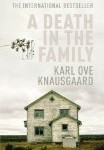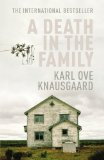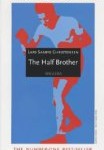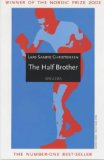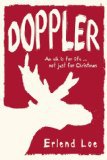 Translated from the Norwegian by Don Shaw and Don Bartlett
Translated from the Norwegian by Don Shaw and Don Bartlett
Five words from the blurb: father, live, forest, elk, existence
Doppler is a lovely little book. It gripped me from the very first page and I read the entire thing in a single day. It was unusual in that it was both powerful and entertaining; a rare combination that is difficult to pull off.
The book focuses on Doppler, a man who has become frustrated with the modern world. He has decided to camp in the forest where he tries to lead an existence free from money and the irritations of television and grumpy people.
The novella begins with Doppler killing an elk in order to have something to eat. Unfortunately the elk had a calf, so feeling guilty for killing its mother, Doppler ends up looking after it. But Doppler’s wife is frustrated and wants him to return home in order to look after their children and bring in some money. The interaction between the couple was enlightening. Loe’s skill as a writer meant I had sympathy for both sides of the argument and I think this means it will appeal to a wide range of people, no matter how strong their environmental views.
The writing was simple, but effective and I found myself laughing out loud on several occasions. As a parent I understood all the cultural references and this added to my enjoyment:
I spend the entire day enthusiastically humming a melody I can’t place. I’m feeling on top of the world as I cheerfully chip away at the bark on the totem pole. Bits fly off into the forest as I work my way around the trunk, lost in my own world, humming and whistling all the while. Snatches of the lyrics begin to emerge by the evening, and I sing them quite uncritically for quite a time before I realise, in a cold sweat, that what I’m churning out is the signature tune to an Australian TV show, Bananas in Pyjamas. Not even out here in the forest am I spared the poison dart of children’s culture.
The book covered many important themes, including commercialism and our reliance on technology, but it addressed them in an entertaining way. I agreed with Doppler’s thoughts on the simple pleasure of being outdoors and think our society might be a little richer if we all followed some of Doppler’s advice.
The brevity and number of talking points make it the perfect book club choice.
Recommended to anyone looking for a short, entertaining read.

.

